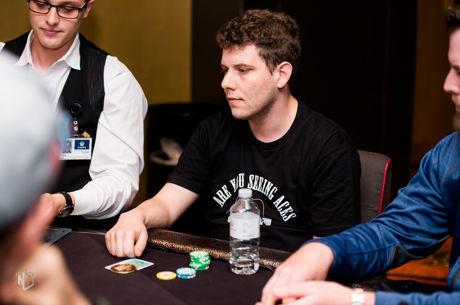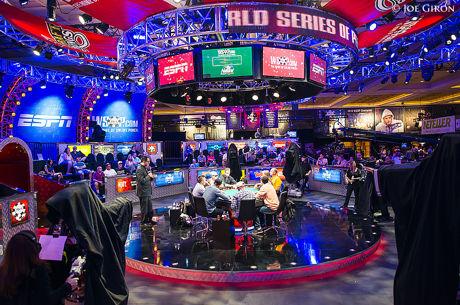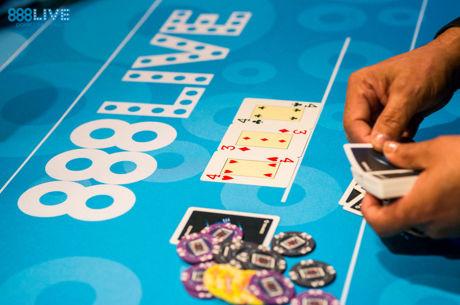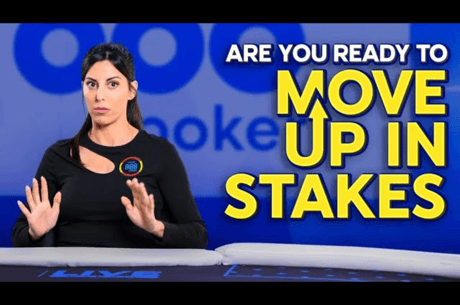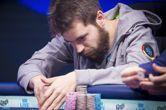Hand Review: Park Springs Bluff That Huber Doesn't See Coming
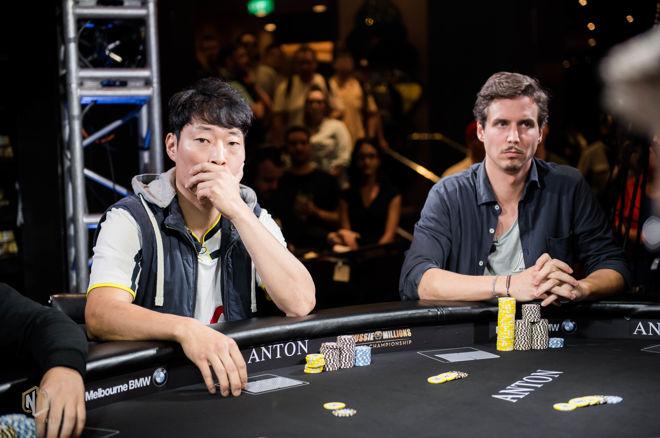
Covering live poker tournaments for a living affords me the opportunity to see countless thousands of hands played out, many of which offer interesting and potentially valuable insights into how players �� both amateurs and professionals �� play the game. In this ongoing series, I��ll highlight hands I��ve seen at the tournaments I��ve covered and see if we can glean anything useful from them.
The Scene
This week, we're going to take a look at what will most likely be the last hand I want to examine through a strategic lens from the 2018 Aussie Millions Main Event final table. While we've discussed some big hands in the past, this one is a bit different than the others as it's more of a thought exercise about a less significant pot. Nevertheless, it was a hand that definitely caught my eye.
This hand occurred almost right away at the seven-handed final table, with underdog Chul-Hyon "Charlie" Park playing about 1.6 million and wily vet Stefan Huber about 1.9 million at 25,000/50,000/5,000.
The Action
Park raised to 115,000 second to act with 8?8?. Huber reraised to 350,000 from the next seat with A?10?, and everyone folded back to Park who opted to call.
The flop came Q?K?A? and after both players checked the 6? fell on the turn. This time Park led out for 300,000, and Huber thought briefly before conceding the pot.
Concept and Analysis
Obviously there isn't a ton of in-depth analysis to perform with such a brief hand, but I still came away a bit baffled by Huber's approach here.
Things begin with Park making a standard open with eights and running into a three-bet from Huber. Now this final table had a bit of an interesting set-up with a few very experienced players like Huber who was clearly looking to play more pots against the less experienced Park. In that vein, Huber reraises here to isolate Park and play a pot in position with a solid holding, A?10?.
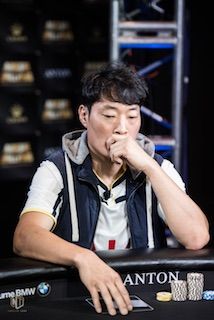
From Park's perspective, calling the three-bet is not something I would advise. In general, eights are going to play pretty poorly postflop out of position. Particularly with shallower stacks around 30 big blinds as in this hand, putting in any money postflop is going to cost a considerable portion of Park's stack and he'll pretty much be guessing on flops where overcards are present, occasionally putting it in nearly dead if he flops an overpair that's no good.
It's likely better, especially for a player against more skilled opponents, to shove or fold rather than just to call the three-bet.
In any case Park called, and the Q?K?A? flop prompted him to check, with Park likely feeling done with the hand. Huber checks back, which seems sensible considering there isn't a ton he can get value from in this spot unless he bets quite small.
The turn is where things get wild. It's a brick and Park leads out for less than half-pot. Then Huber just... folds? Now, all of this of course comes with the caveat that Huber has been way more successful than I would ever be doing this, but I had a hard time wrapping my mind around this fold.
First and most importantly, I can't see a ton of hands that beat A?10? in this spot. We can expect that Park would have most likely shoved AxKx or a big pair preflop given how shallow their stacks were, so I'd somewhat or entirely discount that. Given that, the most likely value hand Huber fears would appear to be AxQx. It's also possible Park could have suited AxJx, KxQx or Jx10x.
Against all of those hands except Jx10x �� which he blocks �� Huber still has some equity, especially versus KxQx, against which he's got 12 outs.
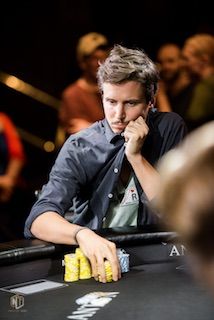
It's also plausible Park could have something worse. If he peeled K?J? or K?10? for example, Huber's still ahead. I believe it was the great Dan Harrington who said always factor in about a 10 percent chance your opponent is on a pure bluff. Given that, the pot odds and outs to the nuts, it seems strange not to call here.
That being said, I have found myself in some fun spots similar to this where I make a light three-bet on what I perceive to be a tight player with something like A?5?, and when my opponent calls I actually hope to miss the flop because I'm not sure my pairs will do me any good.
That may very well be Huber's thought process here, pegging Park as particularly nitty and figuring he's always going to play it straight-up if he continues. But when I catch a solid piece of the board and play my hand passively, I'd call the turn without some sort of ironclad read of how my opponent plays.
Perhaps Huber thought he did have such a read, though, and Park surprised everyone by springing a bluff at an unlikely time and place.

